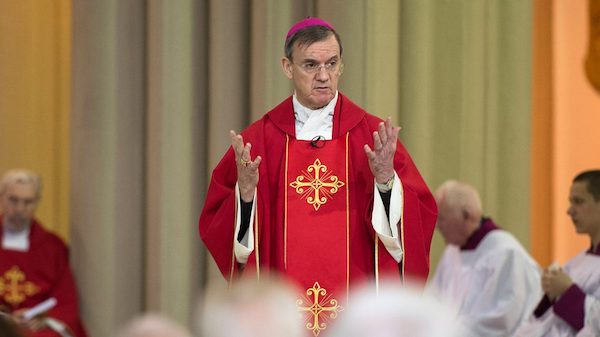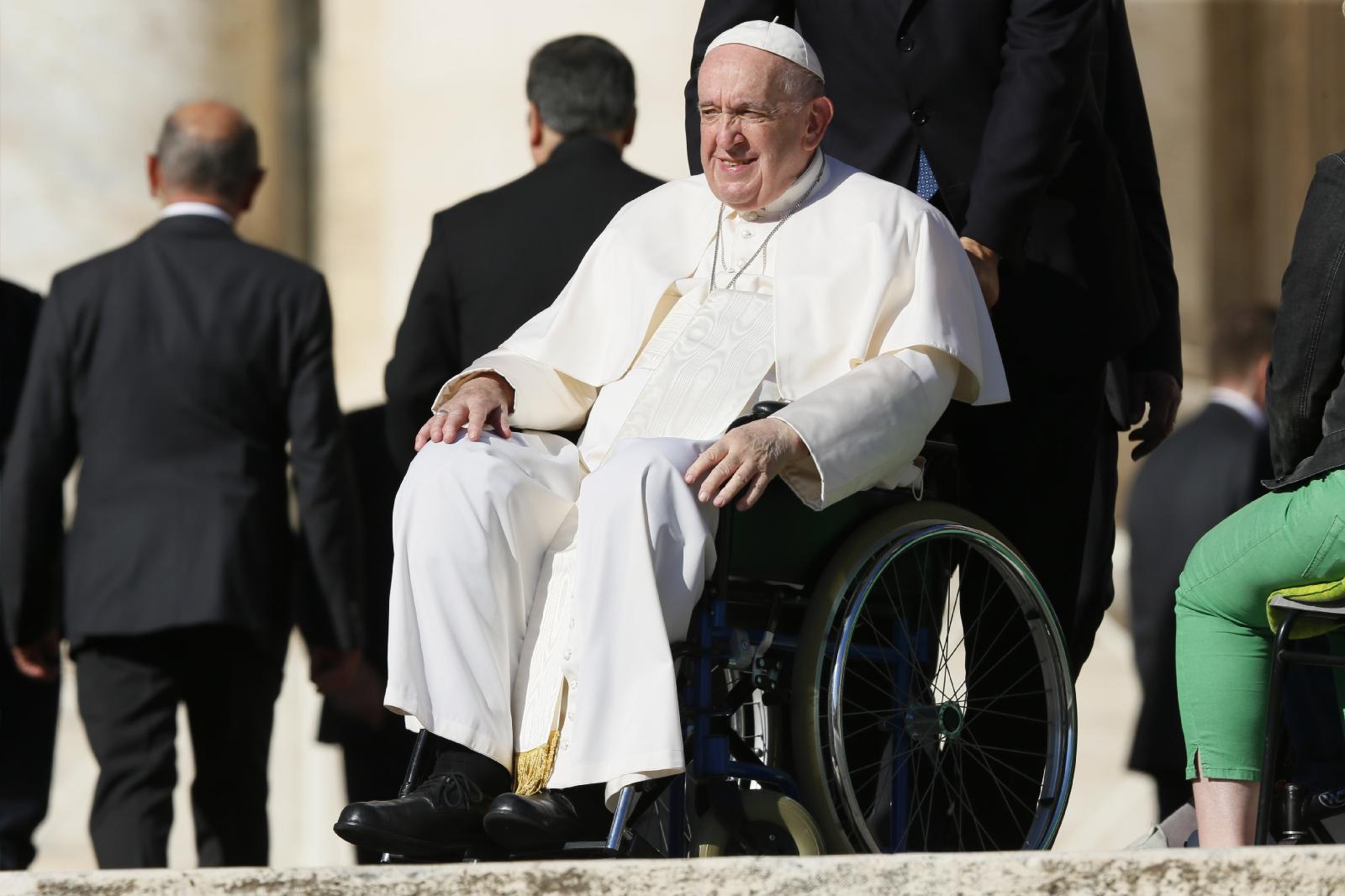Pope Francis is determined to pursue the role of diplomatic mediator on the global stage, even if it means coming under intense criticism for his refusal to offer more explicit condemnations of the actions of the governments of Russia and China.
Even as the rest of the world is set on confrontation, the 85-yearold Bishop of Rome refuses to abandon hope that diplomacy and dialogue can bring justice, peace and reconciliation. He refuses to align the papacy with the goals of Western foreign policy.
His strategy is not to ignore or excuse the atrocities perpetrated by particular regimes, but to keep faith that patient listening can move the hardest of hearts.
Last Sunday, Francis took the highly unusual step of devoting his entire Sunday Angelus address to one subject, the “serious, devastating and threatening” course the war in Ukraine has taken in recent weeks, lamenting the annexations and warning of the “catastrophic consequences” of nuclear war.
His appeal for peace was likened to Pope John XXIII’s radio broadcast on 25 October 1962, during the Cuban missile crisis. John XXIII’s intervention was later credited with helping to de-escalate that potential nuclear conflict. Sixty years later, another pope is tending a flicker of hope in a frightening situation. Not mentioning Vladimir Putin by name, Francis begged “the President of the Russian Federation” to stop the “spiral of violence and death”.
Then, to the consternation of some, also without mentioning him by name, he called on Ukraine President Volodymyr Zelenskiy “to be open to serious proposals for peace”.
Critics say the Pope is guilty of “both sidesism”, of not explicitly standing up to Putin for his act of brutal aggression, and for naively imagining that he can be trusted. And although the Pope emphasised the “sovereignty and territorial integrity of each country, and the rights of minorities and legitimate concerns” be respected, is he suggesting Ukraine should be asked to compromise on its sovereignty in Crimea and the Donbas? But the Holy See remains the only institution based in the West with a channel of dialogue with the Russian state and the influential Russian Orthodox Church.
In a recent discussion with Jesuits serving the “Russian Region”, reported by Civilta Cattolica, the Jesuit journal, Francis said that a military chief and a religious adviser to President Zelenskiy had brought him a list of more than 300 prisoners. “I immediately called the Russian ambassador to see if something could be done.” An exchange of prisoners, the largest since the war began, was arranged.
Helping political prisoners is part of Holy See diplomacy. While in Belarus, the then papal ambassador Archbishop Claudio Gugerotti was reportedly the only diplomat able to visit the country’s political prisoners, negotiating directly on their behalf with President Alexander Lukashenko.
St Francis of Assisi put his life at risk when he crossed the battle lines unarmed to appeal to the Sultan of Egypt, Malek al-Kamil, for peace during the Crusades. The audacious diplomacy of the Pope who has taken the Saint of Assisi as his namesake may fail but, for Francis, that is no reason to stop trying.
When it comes to the Vatican’s attempted diplomatic rapprochement with China, the Pope has faced criticisms similar to those on his handling of the war in Ukraine. Several media outlets and commentators believe the Pope should condemn Beijing’s human rights record and its trampling of democracy in Hong Kong. Francis is criticised for not offering more vocal support to Cardinal Joseph Zen, on trial in Hong Kong for his pro-democracy work. The Holy See is also accused of being naive for signing a provisional arrangement with China’s communist rulers, giving both sides a say in the appointment of bishops. The deal expires this month, but it looks like it will be renewed for two more years.
Francis’ critics assume the Church’s primary role is to issue condemnations, as if it was an activist organisation. The Pope says that the Church is not a “spiritual NGO”, and its mission is to sow the seeds of the Gospel, even in hostile, communist-governed countries. Lambasting Beijing would garner Francis positive headlines, but it would leave the vulnerable “little flock” of Chinese Catholics lumped together with foreign and hostile forces. Fr Paul Han SVD, who teaches at a seminary in Hebei, northern China, told me the Pope’s approach shows he is not simply an ally of the West, “but the moral and spiritual leader of a truly Universal Church”. In China, as in Russia, Francis is trying to play the long game.
For more on Vatican diplomacy and Ukraine: https://www.



 Loading ...
Loading ...